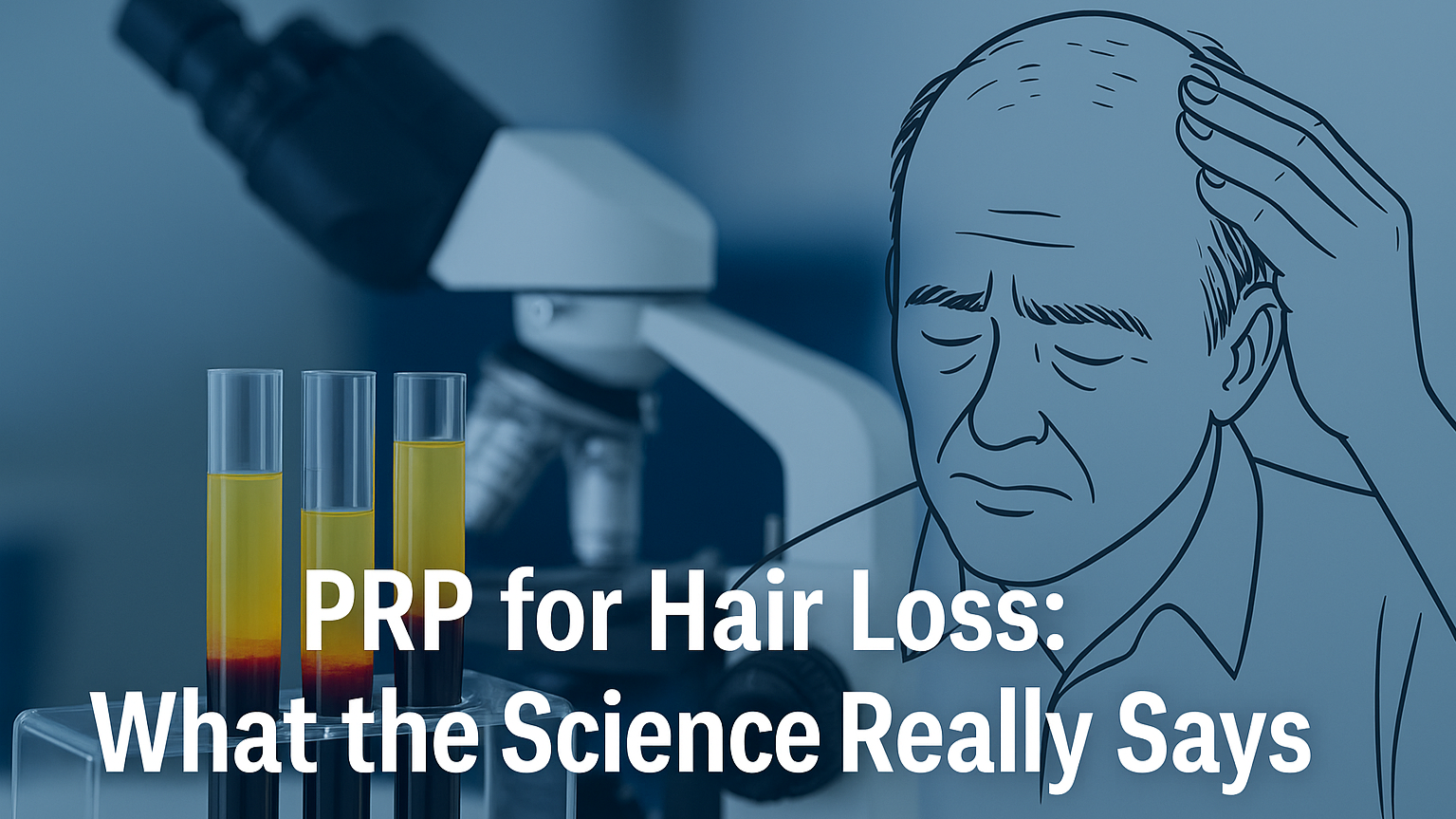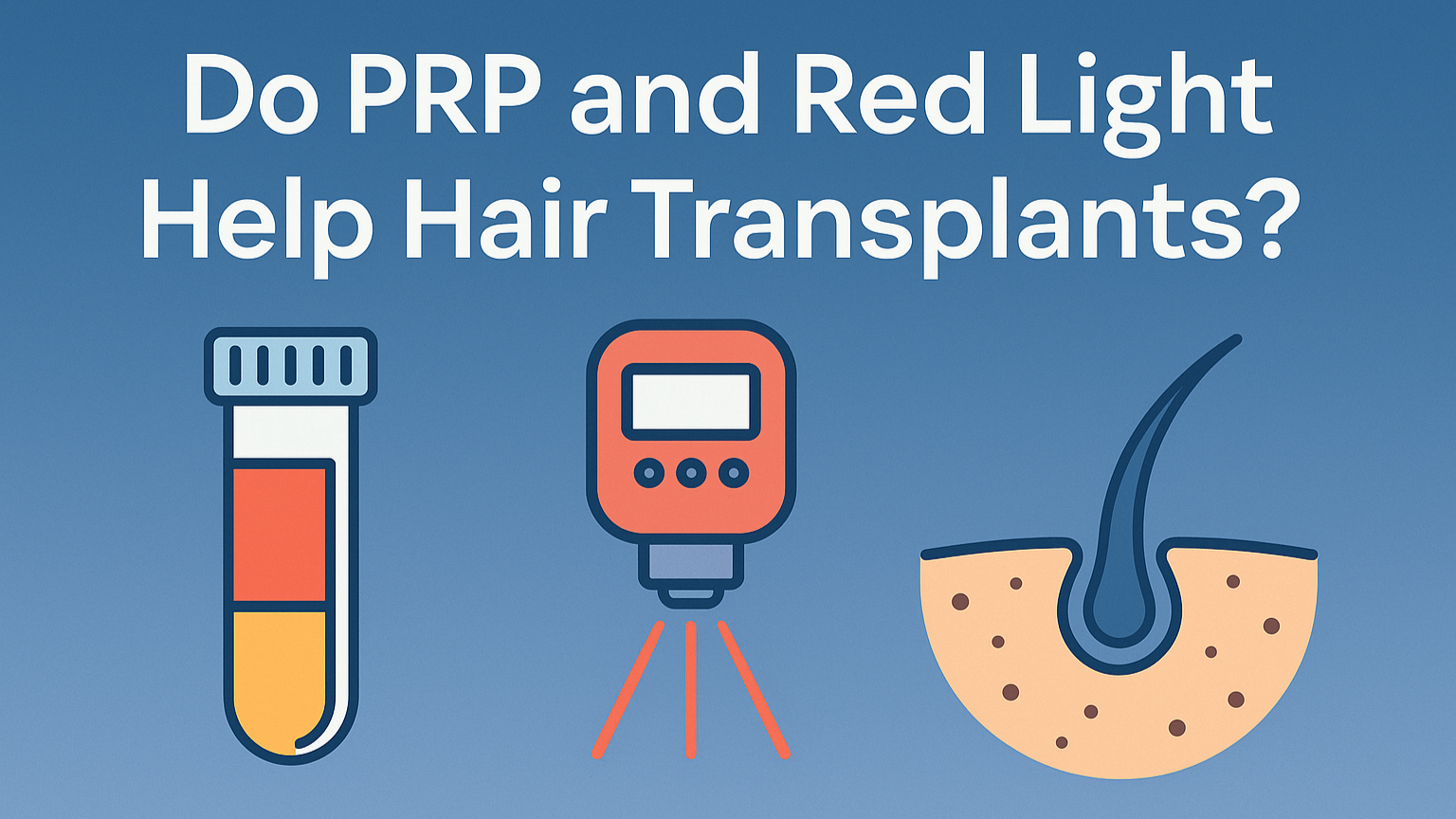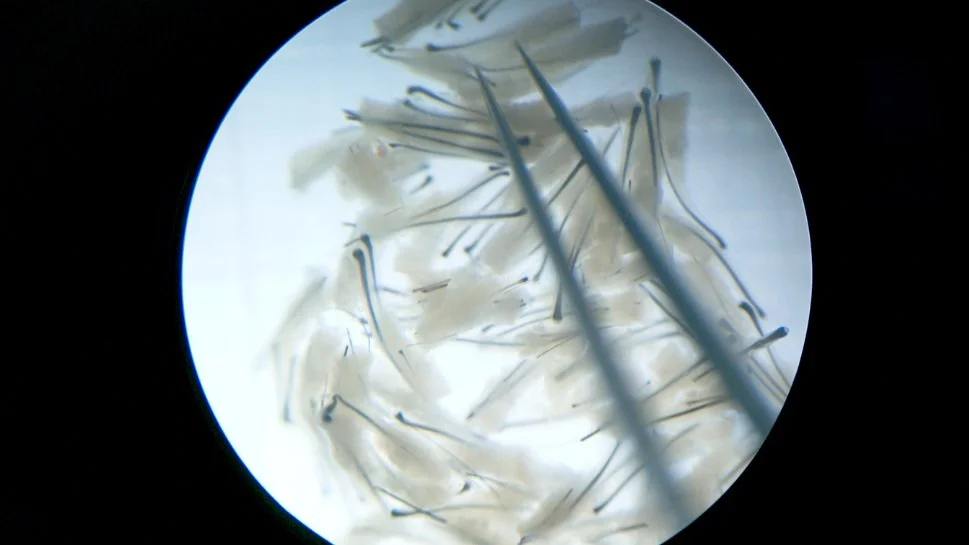Explore Our Learning Center for Hair Loss & Hair Restoration Insights
Search our Learning Center to discover a wealth of valuable information on hair restoration. Whether you're interested in learning about hair transplant costs, the latest advancements like Advanced FUE® and No-Shave FUE™, or understanding the causes of hair loss and ways to stimulate hair growth, we've got you covered. Simply type in your topic of interest and explore expert insights, tips, and guides to help you make informed decisions about your hair restoration journey.
Hair Restoration Survey: 2025 Practice Census from the ISHRS
The 2025 ISHRS Census reveals global hair restoration trends—from graft counts to technique preferences. Discover what this means for patients and how Advanced Hair stacks up with expert insights throughout.
PRP for Hair Loss: What the Science Really Says
Is PRP supported by real scientific data—or just buzz? We review peer-reviewed studies and clinical evidence to uncover what the research actually shows about PRP’s effectiveness in treating hair loss. If you want facts over marketing, this one’s for you.
Do PRP and Red Light Therapy Really Help Improve Hair Graft Survival?
Can PRP or red light therapy make your hair transplant more successful? Learn what the science says—and why Advanced Hair Restoration focuses on what really works for graft survival.
Factors Affecting the Growth and Survival of Follicular Grafts
What makes a hair transplant succeed? Learn the science behind follicular graft survival—from hydration and timing to surgical precision—and how Advanced Hair’s strict protocols give your grafts the best chance to thrive.
When Is PRP for Hair Loss Recommended? What You Need to Know Before You Try It
Not sure whether to try PRP or move forward with a hair transplant? In this article, we break down when PRP may (and may not) be appropriate, what the science says, and why most patients seeking real results ultimately turn to permanent solutions like Advanced FUE®.
FUE vs DHI: What’s the Difference—and Which Hair Transplant Method is Best?
FUE and DHI are both popular hair transplant techniques—but are they really different? Learn how each method works, the pros and cons, and why Advanced FUE® leads the way.
The Truth About Regenerative Hair Loss Therapies: What Patients Deserve to Know
Regenerative therapies like PRP, exosomes, and stem cells are being marketed as cutting-edge hair loss solutions—but how effective are they?
Understanding Hair Plugs: Are They Still Relevant in Hair Restoration?
Hair plugs were the early answer to baldness, but they’re now obsolete. Discover how today’s hair transplant techniques deliver natural, refined results.
Can Women Get Hair Transplants?
Think hair transplants are only for men? Think again. Women experience hair loss too—and they have great options. Discover how modern hair restoration works for women and what to expect during treatment at Advanced Hair.
DHT Blockers for Hair Loss: How They Work and What to Expect
DHT blockers are a popular treatment for pattern hair loss—but do they work? Discover how they function, which ingredients are effective, and how to choose the right option for your hair.
Are All Hair Transplants the Same?
Are all Hair Transplants the Same? While the basic principle involves transferring hair follicles from a donor site to a recipient site, the practice of hair transplantation can vary significantly. Here’s why our approach to hair transplantation is unique and why it matters to you.
Am I a Candidate for Hair Transplant Surgery
Hair transplantation surgery is a transformative procedure that can restore natural-looking hair for individuals experiencing hair loss. However, not everyone is an ideal candidate for this treatment.
Capillus Rx – Physician-Exclusive Laser Hair Therapy
Experience advanced hair restoration with the Capillus Rx Laser Therapy Cap, an FDA-cleared, physician-exclusive device designed to promote hair regrowth in just 6 minutes a day.
Diabetes and Hair Loss: Understanding the Connection
Does diabetes cause hair loss? While not directly responsible, diabetes and prediabetes can impact hair health through reduced blood flow, hormonal imbalances, and chronic inflammation.
Saw Palmetto and Hair Loss: Exploring Its Role in Slowing DHT Production
Saw palmetto is a natural remedy gaining attention for its potential role in managing hair loss, particularly androgenetic alopecia. While it won't regrow lost hair, its DHT-inhibiting properties may help slow hair thinning and support a healthier scalp when used as part of a broader treatment plan.
How to Stop Hair Loss and Promote Hair Growth
Wondering how to stop hair loss? FDA-approved treatments like Finasteride and Minoxidil can slow thinning, while hair transplants offer a permanent solution. Explore your options.
Understanding Donor Dominance in Hair Transplantation
What makes hair transplantation so effective? The answer lies in donor dominance—a fascinating discovery that ensures transplanted hair grows naturally and resists future hair loss. Learn how the science of DHT-resistant "super-hairs" from the safe donor zone transforms hair restoration outcomes and why this principle is the foundation of modern hair transplant success.
Choosing the Right Hair Transplant Clinic: Key Factors to Consider
Selecting the right hair transplant clinic is a critical step in your hair restoration journey. With numerous options available, it’s essential to consider several key factors to ensure you receive quality care and optimal results.
What is Scalp Micropigmentation (SMP)?
Scalp Micropigmentation (SMP) offers a non-surgical way to restore the appearance of hair. Whether you’re dealing with thinning hair, pattern baldness, or scarring, SMP creates a natural, fuller look through specialized pigments. Find out who it’s for and how to determine if this innovative hair restoration option is right for you.
Why Androgen Levels Matter: Impact on Hair, Skin, and Overall Health
Androgens like testosterone and DHT play a crucial role in several aspects of our health, from hair growth to skin condition and metabolism. Understanding how these hormones impact the body can help you manage issues like hair loss, acne, and even metabolic imbalances.





















